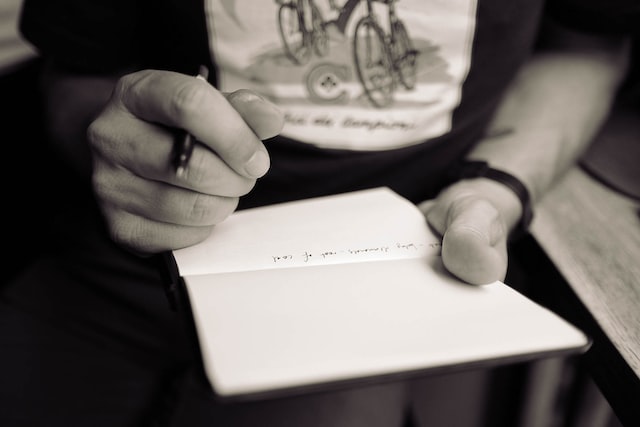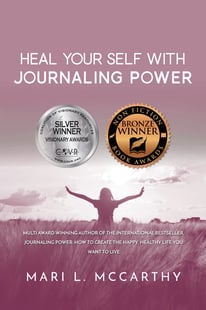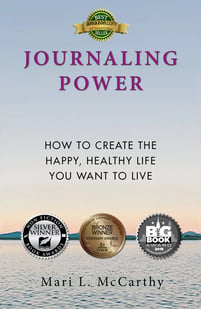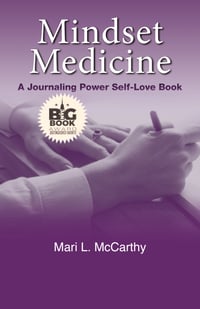Stream-of-consciousness (SoC) writing is a narrative style made famous by modernist authors like Virginia Woolf and William Faulkner. Writers like Woolf would make free associations as they wrote, and allow their minds to wander as the words and ideas came to them.
For folks who are used to clear structure and genre requirements, SoC writing may seem like a waste of time. However, some of the world's greatest novels have been produced using the technique. Mrs. Dalloway, Beloved, and On the Road all utilized SoC and discovered a new way to capture the human experience.
You don’t have to be a Nobel prize-winning author to write in SoC. You can use SoC during your daily journaling sessions to help improve your creativity, discover new ideas, and grow as a person.
Stream of Consciousness and the Flow State
As a genre, stream-of-consciousness is a narrative style that “includes a lot of free association, looping repetitions, sensory observations, and strange (or even nonexistent) punctuation and syntax.” Authors who write in SoC often break traditional syntax and grammar rules to “show” the reader a particular character's state of mind, ideas, or opinions.
SoC writing is designed to calm your brain and help you discover the illusive “flow state” that authors and athletes are always talking about. When in a flow state, your brain is able to focus on a task with complete clarity. You aren’t distracted by intrusive thoughts and the rest of the world seems to fade out of focus.
The opening lines of Virginia Woolf’s Mrs. Dalloway provide a stirring example of the genre in action. The novel’s protagonist, Clarissa Dalloway, hears the chime of Big Ben and reflects “Big Ben strikes. There! Out it boomed. First a warning, musical; then the hour, irrevocable.”
When journaling, you are the main character of the story. Your thoughts, ideas, and opinions are the ones that belong on the page. SoC can help you get into the core of your mental state and helps you write without having to first consider punctuation, structure, or syntax. SoC can be particularly helpful if you’re struggling to get started or are running into writer’s block while trying to journal.
Health and Wellbeing
Journalling is a well-known way to improve your happiness, health, and overall well-being. Just five minutes of writing per day can help you invite positivity back into your life and build on your skills as a writer and critical thinker. Journaling with SoC is particularly powerful, as your thoughts and ideas will make their way straight from your brain onto the page.
SoC journaling can improve your mental health and help you control some of the symptoms of conditions like anxiety. Journaling for mental health works by helping you:
- Prioritize problems, fears, and concerns
- Track symptoms day-to-day
- Recognize triggers and how to control/avoid them
- Practice positive self-talk
SoC journaling can be particularly powerful if you are entering old age and struggling with managing depression later in life. Many older adults become isolated and may struggle due to physical limitations. SoC journaling can help you draw from your wealth of life experience, and allows you to connect the challenges you face today with positive memories or past experiences.
When and Where
SoC journaling can be done anywhere, at any time. However, to get the best results, you should establish a routine that works for you. Try to set aside five to ten minutes per day when you aren’t going to be interrupted and allow your thoughts to flow freely on the page.
If possible, try writing when you wake up or just before you go to bed. This will give you a subject to write about (the upcoming day or the day that’s just past) and may help you refocus your thoughts.
SoC journaling can also be a wonderful relaxation technique when you are experiencing something stressful. For example, if you don’t like flying, you can use journaling to calm your mind and make the journey that much easier. Get yourself comfortable on a flight by changing into loose-fitting clothing and listening to calming, meditative music. Then, start to write about whatever subject reduces your feelings of stress or anxiety.
Prompts
SoC journaling can be as simple as picking up a pen and writing about the first thing that comes to mind. However, for many writers, the direction to “just write” prompts blank stares and the onset of writer’s block.
Instead, consider the following prompts to help channel your thoughts and get started:
- Listen for a few moments. What can you hear but not see? What might it look like if you could see it?
- If your favorite color had a personality, what would it be like?
- What is your favorite moment from the past day? What happened, and how did you feel at that moment?
- Look up a quote from your favorite author and write it at the top of your page. How does it make you feel? What ideas does it spark within you? What questions might you ask your chosen author?
These prompts are designed to get you writing quickly. Allow yourself to make mistakes and follow the thoughts that come to you. If no ideas come to you, just sit in quiet contemplation. Just writing a few words in SoC can be valuable, even if they take a while to form.
Remember that no one else is reading your journal or judging your production. This means that your SoC journal can be as “bad” as you want it to be. Writing whole paragraphs on the way bananas make you feel or the color beige is absolutely fine, and may even help you uncover valuable thoughts and feelings.
Conclusion
Stream-of-consciousness journaling is a great way to overcome writer's block and discover interesting ideas. You can get started by finding a relaxing space to write in and consider one of the prompts above. Try to write freely and don’t stress if your writing lacks cohesion or narrative sense
 Author bio: Miles Oliver is an independent writer with a background in business and passion for psychology, news, and simply helping people live happy and fulfilled lives. He has lived and traveled all over the United States and continues to expand his awareness and experiences. When he is not writing, he is most likely mountain biking or kicking back with a cup of tea.
Author bio: Miles Oliver is an independent writer with a background in business and passion for psychology, news, and simply helping people live happy and fulfilled lives. He has lived and traveled all over the United States and continues to expand his awareness and experiences. When he is not writing, he is most likely mountain biking or kicking back with a cup of tea.
Journaling Power Revolution Series






Leave Comment